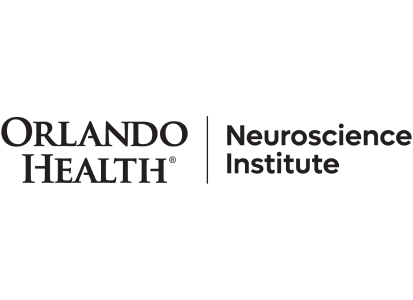Facial Pain and Trigeminal Neuralgia
Facial pain can be caused by a variety of factors, including headaches, injuries, dental problems, infections and nerve conditions such as trigeminal neuralgia. At the Orlando Health Neuroscience Institute, our compassionate specialists understand the challenges and emotional toll created by chronic face pain. Our multidisciplinary approach will provide you with a care plan, including next-level diagnosis and treatments, tailored to your unique needs and symptoms.
Diagnosis
Diagnosis begins with a physical examination by your doctor, who will seek detailed information about your pain, including location, intensity and potential triggers. This may be followed by a neurological exam to assess how the nerves in your brain and motor system function, along with pain tolerance and reflexes. Your doctor may also use magnetic resonance imaging to look for signs of tumors, multiple sclerosis and other potential causes.
You should keep in mind that there are many conditions and syndromes that have facial pain as a symptom. So, your doctor will first look for other medical conditions that could be causing your pain. Trigeminal neuralgia-like symptoms, for example, can be caused by cluster headaches, migraines, TMJ disorder, ear infections and sinusitis.
Treatment
Chronic facial pain often can be managed with medication. But over time, medication may lose effectiveness or cause unpleasant side effects. In those cases, injections or surgery may be a more effective option. Among the treatments we offer:
These drugs, typically used to treat epilepsy or seizures, also have been shown to be effective for trigeminal neuralgia. Side effects include dizziness, nausea and confusion.
Muscle-relaxing medications are often used in combination with anticonvulsants. Side effects include confusion, nausea and drowsiness.
This procedure is similar to glycerol injection. But instead of injecting glycerol into the area around the trigeminal nerve, your doctor inflates a tiny balloon with enough pressure to damage the nerve and block pain signals. The procedure often relieves pain for up to two years. Numbness in the face is a common side effect.
The same substance used by plastic surgeons to reduce wrinkles has shown potential to help reduce pain when other medications no longer work.
Your surgeon will use tightly focused radiation to create a lesion at the root of the trigeminal nerve. The procedure causes a lesion to form over several weeks, hampering the nerve’s ability to transmit signals. It generally eliminates or reduces symptoms for three to five years. The procedure can be repeated. Facial numbness is a common side effect.
During this procedure, your doctor will carefully insert a needle through your face to reach an opening at the base of your skull, where the trigeminal nerve divides into three branches. A small amount of sterile glycerol is injected into the area, damaging the nerve to block pain signals. The procedure, which can be repeated, is often successful at relieving pain for one to two years. Facial numbness or tingling are common side effects.
During this surgery, your doctor will mobilize vessels that are pushing against the trigeminal nerve. The surgeon gains access to the area by making a small hole in your head, behind the ear. A soft cushion may also be placed between the nerve and arteries.
If no blood vessels are found to be pressing on the nerve, your surgeon may perform an internal neurolysis, where the internal fibers of the nerve are separated yet preserved. The procedure can eliminate or reduce pain for many years, though 30 percent of patients experience recurrence within 10 years. There are some risks, including hearing loss, facial weakness or numbness and stroke.
This procedure is for certain patients with trigeminal neuralgia that has failed the above standard treatment options. During this procedure, your neurosurgeon will place electrodes on the surface of the brain to control pain signals, thus decreasing the perception of pain. It is an off-label procedure, which means it is not yet FDA approved.
The procedure is designed to selectively target nerves related to your facial pain. While you are sedated, the surgeon inserts a needle through your face to the base of your skull, where the trigeminal nerve divides into three branches. At that point, you will be awakened. The surgeon will then use a mild electric current to help locate the nerve linked to your pain.
Once the nerve is located, you are again sedated, while your surgeon uses a heated electrode to damage the nerve. This creates a lesion that blocks the pain transmissions. Pain may return after three or four years. Temporary facial numbness is a common side effect.
This procedure can be done to treat the pain of the lower two branches of the trigeminal nerve division. There are various ways of performing this procedure. It is usually done through an opening from the side of the face near the ear using fluoroscopy, under the cheek bone, where a needle is placed and advanced toward targeted site. Local anesthetic and steroids are injected. This usually provides a few months of relief. This procedure is an alternative and safer approach than a trigeminal nerve block. This is usually performed while the patient is awake.
This procedure can treat all the branches of the trigeminal nerve. A needle is inserted into the face to the area of the trigeminal nerve and a small amount of steroids and local anesthetic are injected. This usually provides a few months of relief. This is usually performed while patient is awake.
Our team participates in clinical trials that can offer our patients early access to promising treatments, therapies and surgeries.
-
Request an Appointment
-
Meet the Team
Navigate Your Health


Find a Neuroscience Specialist
Find a Neuroscience Specialist
Meet our doctors who specialize in the full range of neuroscience care. Our team of experts has experience in a variety of specialty areas. Together, we provide comprehensive evaluation, diagnosis and treatment options.
Find a Doctor

Virtual Visit
Virtual Visit
Need to talk with a doctor, but don’t want to leave your home? Try our virtual visit (telehealth) option to connect with a physician from your phone, tablet or computer.
Learn More

